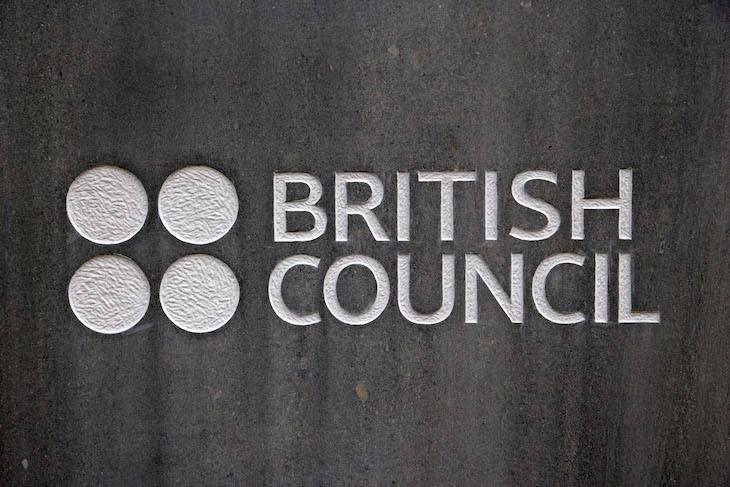The British Council, the cultural arm of the UK government, is in deep trouble. The 91-year-old organisation is struggling to repay a £200 million-pound loan from the Covid era and there is anxious talk of up to 40 centre closures and a possible 2,000 job losses. Assets are being sold off to try and keep the show on the road.
There is a problem that the Council does not really know what it is for – or perhaps it knows, but does not relish, its mission
‘We really need help on that loan,’ says Scott Macdonald, the Council’s beleaguered chief executive. ‘The government has got to turn it into something viable for us and at reasonable termsWe are selling off everything.’ The response so far has been pro forma and decidedly unhelpful: ‘We remain committed to ensuring the financial stability of the British Council…’.
This is not the first time, of course, that the Council has been in financial difficulty – as I well know, having worked there for what seemed like a crisis-ridden decade. But the language this time is more urgent and there is a sense of a tipping point having been reached. Theoretically publicly subsidised, the Council now raises 85 per cent of its running costs through its commercial activities (mainly language teaching and exams), but the loan terms are clearly crippling and the organisation desperately needs certainty about its future.
There is no doubt that the Council has made mistakes. It suffers from serious structural problems and a woeful lack of commercial savvy. A quick perusal of message boards of often disenchanted ex-staff produces a constant stream of gripes with ‘incompetent management’. Everyone who has worked there will have their stories of misguided initiatives launched by managers who assessed their own projects’ success or failure, with the latter often seeming to be a springboard for promotion. The hugely unpopular decision to close nearly all the council’s libraries in the early 2000s was sadly emblematic of a high-handed approach from a notoriously unaccountable elite.
A particular problem is the rapid turnover of senior staff. One of the great advantages of the organisation is the ability to move around the world fairly easily with no loss of position. But in practice this means that managers rarely have time to acquire the local knowledge or contacts that contribute to wise decision making and long-term planning. I must have had half a dozen centre managers in my time in Tokyo. It seemed as if as soon as they had learned how to pronounce ‘Kagurazaka’ correctly, they were off.
Then there is the problem of the Council not really knowing what it is for – or perhaps knowing but not relishing its mission. The simple answer is that its job is ‘promoting the UK abroad’ but that rarely seemed to happen in the centres I was familiar with. A look at the Council’s online magazine evidences this – there is article after article about topics such as Black History Month, Mental Health Awareness Week, UN International Literacy Day, Diwali. Of the UK and its customs and culture, there is very little. In his memoir of his time as UK Ambassador in Uzbekistan Craig Murray relates how he tried to enlist the help of the British Council with a UK music festival he was organising and they point blank refused. There was a joke during my time at the British Council in Tokyo that when the Japanese Shakespeare Appreciation Society moved into offices upstairs it meant there was finally a pro-British organisation in the building.
But the Council’s woes aren’t entirely its fault; government indifference and a disinclination to fully back the organisation has characterised the last few decades. The Council’s analogues, such as Germany’s Goethe-Institut and the Alliance Francaise receive far more in government subsidy (£900 million and £600 million respectively, as opposed to the Council’s paltry £160 million for 2025/6). And they don’t have to compete with the local language schools to anything like the same extent.
In Japan it was very hard to make money, while maintaining standards and recruiting the most qualified teachers. The local private companies employ aggressive marketing strategies that make the salesmen in Glengarry Glenross look mild and reasonable. Of course, they were far cheaper. It was impossible for the British Council to compete.
There is little doubt the British Council needs to reform and reinvent, or perhaps rediscover itself. A slim-downed management and a refreshed offer (a few more Union Jacks wouldn’t go amiss) looks to be essential. If current staff find that distasteful, they should move on. As for the government, it needs to accept that maintaining a chain of cultural embassies around the world, staffed with the best qualified teachers, in challenging commercial circumstances, can’t be done on the cheap.
Ultimate responsibility for the British Council lies with the Foreign Office, so if may be Yvette Cooper who will decide its fate. Her decision may come down to a simple question of how strongly the government feels about promoting the UK abroad. There were some raised eyebrows when the Foreign Secretary declared herself a patriot recently with a house festooned with Union Jack bunting and flags of St George. Worried British Council staff will be hoping that scepticism is misplaced.








Comments